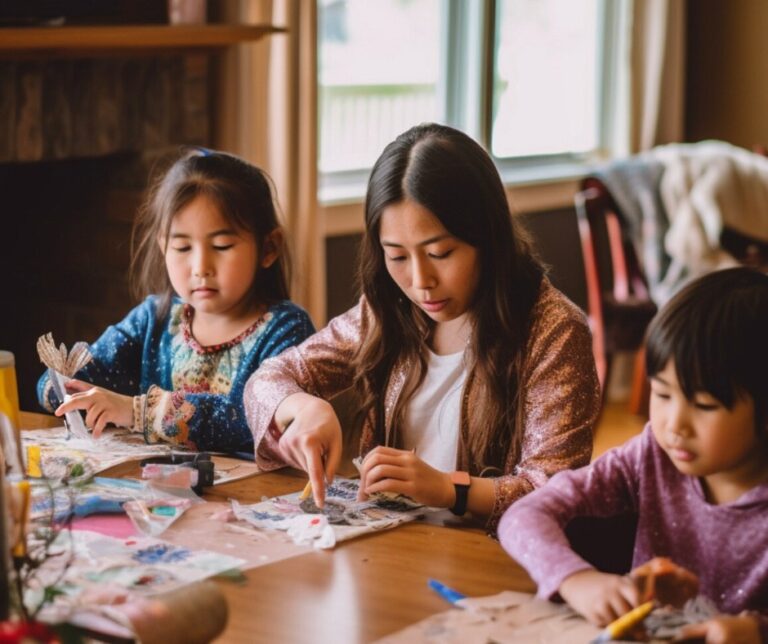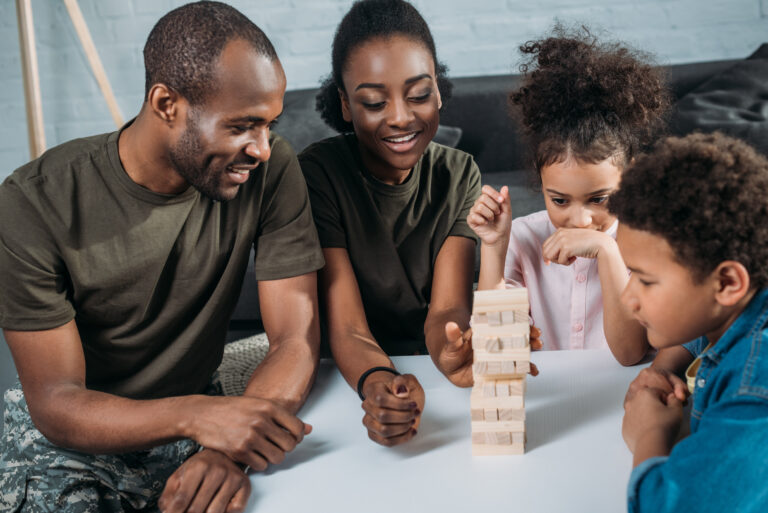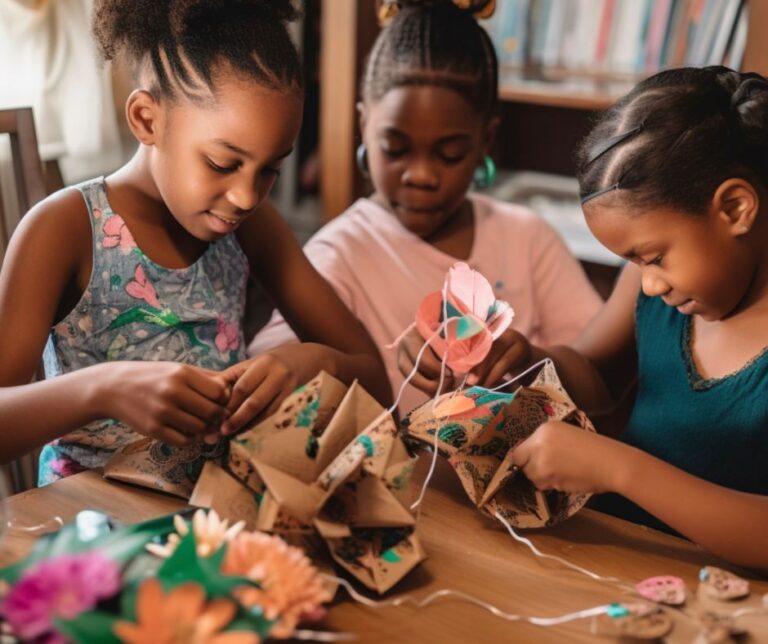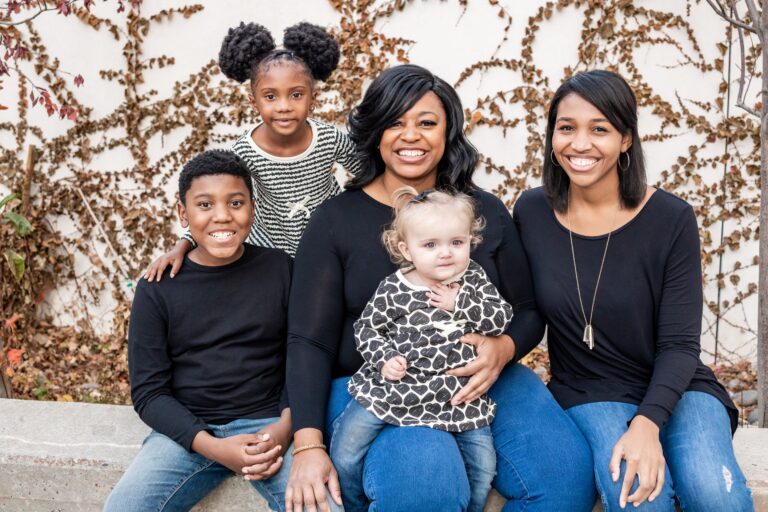Adoption
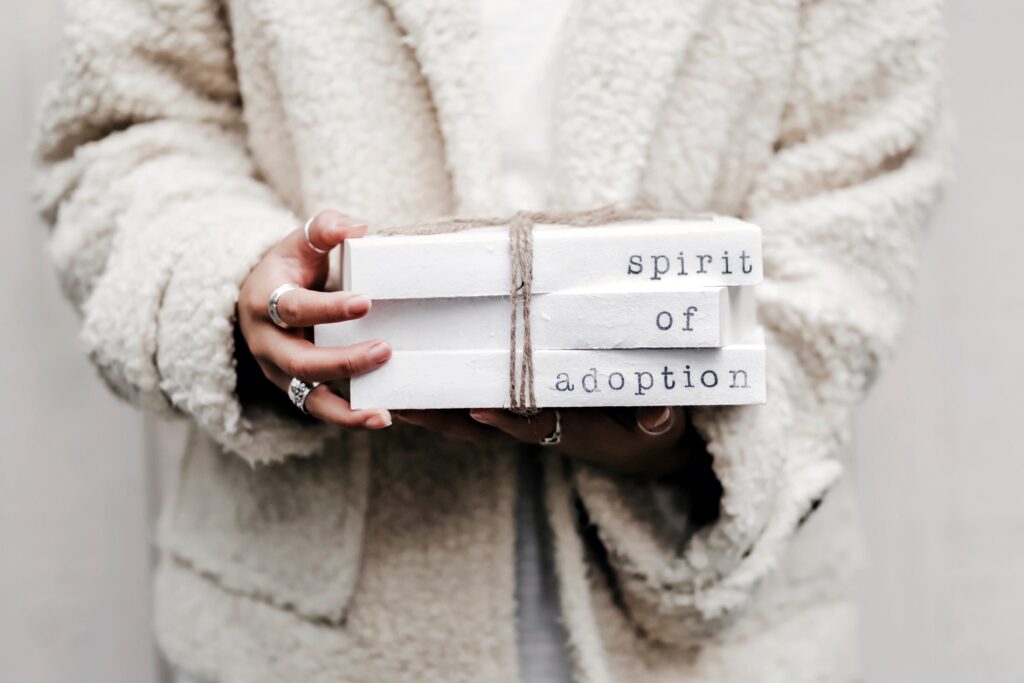
Adoption is when a child's custody is given to a person or two who aren't that child's biological parents.
Adoption permanently negates the biological parent or parents from any responsibility for that child for the rest of its life. The person or people that adopted the child gain full custodial rights, and there isn't a difference between biological and adoptive parents in the eyes of the law.
There are many different types of adoption, including open, semi-open, and closed.
An open adoption is when custody is given to non-biological parents, but the biological parents are entitled to visits, letters, or other forms of contact.
The arrangements vary and can be very lenient or restrictive, depending on the situation. For example, a semi-open adoption allows the biological parents to meet the adoptive parents a few times. It allows them to choose an open or closed adoption later. A closed adoption only gives the adoptive parents medical records but not much else. So little is ever known about biological parents, and it can be due to governmental agencies placing children in an unhealthy environment or abuse.
Many issues can contribute to a child being put up for adoption. Some of the most common issues are when a mother knows she cannot take care of her child or when a child is removed from her parent's home by a governmental agency involved in social services.
It is generally a good thing for the child as they are guaranteed the treatment and care they deserve, but circumstances vary greatly with each case. For example, natural disasters or military actions can also put children in situations where adoption is an option.

Is Adoption Right For You?
How can you tell if adoption is right for you? This can be one of the hardest questions to answer.
Adoption is one of the most difficult and life-changing events you will ever face. Yet, this child will be a part of you for the rest of your life.
If you feel like you need something to take care of, consider a puppy because having a child is a huge responsibility. You will need to face all the good and bad times with no regrets.
An obvious benefit of adoption is that you gain a new family member and give a family to a child without one. Adoption is a highly beneficial choice for any individual, as it benefits both the adoptee and the adoptive parents. Reasons for adoption may vary from person to person, yet the outcome is always positive. The woman may not want to carry a baby for nine months, maybe there is an infertility issue, or you want to reach out and help make the world a little bit better. Only you know the reason you want to adopt a child.
Before even considering adoption, you need to look inside yourself. Do you have the patience to handle a child?
Children are not easy to tolerate all the time. But, if you've seen that parent in the store with the child running around misbehaving, you have a tiny glimpse into parenthood.
Children don't always do what they want or grow up to be who you want them to be. They will grow up to be themselves instead.
Before adopting, ensure you have the parenting skills, finances, and above all, the time and love to give the child a wonderful environment where they can grow up and thrive.

Adoption Dissolution
The process of adoption is a beautiful one and can bring a great deal of joy to both the child and the adoptive family. It is a process meant to bring families together for the betterment of everyone involved. Unfortunately, however, not all adoptions turn out as planned. Sometimes, the adoption process doesn't work out, and the family and the child must be separated. Unfortunately, this is what is known as an adoption dissolution or un-adoption.
Adoption dissolution can happen for a variety of reasons. It could be that the adoptive family was not able to provide the resources needed to care for the child, or the child could have emotional or behavioral issues that the family was not equipped to handle. It could also be that the adoptive family and the child were unable to form a bond, and it was in the child's best interest to be moved to another family. No matter the reason, it is always difficult when adoption is dissolved.
The process of un-adoption can be emotionally draining for all those involved. The child may feel confused and heartbroken over the dissolution. The adoptive family may feel they have failed to provide the child with the home and love they need. Recognizing these emotions are valid and engaging in a transparent dialogue is essential.
Though un-adoption is a difficult process, it is sometimes necessary. Ultimately, it is important to remember that the child's best interests are the top priority. It is crucial to ensure a child's well-being if they are not living in a safe and nurturing environment, which may require finding alternate living arrangements for them. Un-adoption can be difficult and emotional, but it is sometimes necessary to ensure that the child is in the best possible situation.
Adoption dissolution is a rare and unfortunate occurrence, especially true when it comes to newborns or infants. Parents may find it challenging to comprehend, yet it is possible that they could feel unable to create a supportive and caring atmosphere for their adopted child, which could lead to this event happening. Generally, adoption dissolution is more common when it involves a foster child because foster children may have difficulty adapting to their new surroundings and family members. For example, they may find it difficult to adjust to the presence of other siblings in the home or to sudden changes in their environment. In these cases, the parents may decide that it is in the child's best interest to dissolve the adoption. Fortunately, these situations are rare, and many foster children can adjust successfully to their new homes and families.
Bringing a child into a family can be a rewarding experience. However, it can also present challenges in terms of family dynamics. One common issue is when a child's siblings tease the adopted child. Even if the teasing is done for good fun, it can be hurtful and damaging to the adopted child's self-esteem. In some cases, the adopted child may also be mean or abusive to the other family members. These behaviors can be especially difficult for the parents as they try to provide a loving and supportive environment for their adopted child. However, these issues can be resolved through counseling or other behavioral modifications.
Counseling can provide the adopted child with the support they need to work through their feelings and learn to cope better with their new family situation. It can also help the siblings understand and respect the adopted child. In addition, other interventions such as family therapy, positive reinforcement, and communication exercises can help the family members better understand each other and work together to create a more harmonious home environment. However, it is important to note that not all issues can be resolved through counseling or other interventions. Therefore, it is highly recommended that, in certain circumstances, professional assistance be sought to guarantee the security and prosperity of any adopted child or other family members.
It is important to remember that the adopted child may have come from a difficult background, and it may take some time for them to adjust to their new family. However, with patience and understanding, most families can work together to create a loving and supportive home environment for their adopted child.
Older children who have been adopted many times by different families often have a history of attachment and medical issues.
It's important to note that this is not because they are bad children but because they may have been exposed to difficult situations before being adopted. For example, Attention Deficit Hyperactivity Disorder (ADHD) and Reactive Attachment Disorder (RAD) are both commonly seen in adopted children. ADHD is characterized by difficulty paying attention, hyperactivity, and impulsivity, and RAD is a condition in which a child cannot form healthy attachments with caregivers. Both of these conditions can be difficult to manage, and adoptive parents may not understand how to deal with them.
Unfortunately, many adoptive parents are not equipped to handle the challenges of older children with a history of attachment and medical issues. The lack of specialized knowledge and resources for the care of these children may lead to tension and conflict between parents and children, potentially straining the parent-child relationship. To ensure successful adoptions of older children, adoptive parents must take the time to learn about common medical and attachment issues and how to handle them best. Adoptive parents equipped with the necessary resources and understanding of the adoption process can foster a secure and nurturing environment for their children and aid them in achieving success. By educating themselves and getting the help they need, adoptive parents can ensure that their adopted children have the best chance at a healthy and happy future.
One of the most difficult of these is when a child has a mental health disorder like ADHD or reactive attachment disorder. Adoptive parents, particularly those without a background in psychology or mental health, may find it challenging to comprehend and address the associated problems which arise. ADHD is a condition that affects a person's ability to focus and concentrate. It is characterized by hyperactivity, impulsivity, and difficulty sustaining attention. Children with ADHD often struggle in school, have difficulty following instructions, and may have difficulty controlling their emotions.
It is essential to comprehend that Attention Deficit Hyperactivity Disorder (ADHD) is a medically-defined syndrome and not a reflection of laziness or a lack of cognitive capacities. Reactive attachment disorder is a condition that can occur in children who have experienced significant trauma or neglect. These children often have difficulty forming attachments with others and may have difficulty regulating their emotions. They may also display aggression, defiance, and difficulty following instructions.
ADHD and reactive attachment disorder can be difficult for adoptive parents to deal with, as they can lead to behaviors that disrupt the home environment. Adoptive parents need to recognize the symptoms of these disorders and seek help from a mental health professional. A therapist or psychologist can help diagnose the disorder and develop a treatment plan to help the child manage their symptoms. It is also important for adoptive parents to understand that these disorders do not reflect their parenting abilities. With proper treatment, children with ADHD and reactive attachment disorder can lead healthy and productive lives.
Adoption dissolution is a difficult and emotional choice for everyone involved. Adoptive parents may find themselves in a situation where they cannot meet their adopted child's special needs and must consider the possibility of dissolving the adoption. In some states, the law allows children 14 and older to request an adoption dissolution when the adoptive parents are unable. The result of this dissolution could be the child being placed back into a foster home or with some other relatives. Though this is a difficult decision, it is important to consider the child's well-being and ensure that they are provided with the best possible care.
Adoptive parents should be aware of the signs their child may be struggling with, such as social and behavioral issues, and be open to the idea that dissolution may be the only option to ensure their child receives the best care. It is important to note that the dissolution of adoption does not mean the parents have failed their child. On the contrary, adoptive parents have put in an immense amount of effort and dedication to their child, and the decision to dissolve adoption may be the best choice for their child's wellbeing.
Adoptive parents should also remember that dissolution does not mean the end of their relationship with their child. If both parties are willing, they can maintain a relationship and provide ongoing support. Adoption dissolution is an emotional process for everyone involved, and it is important to consider all factors before making a decision. Dissolution may be the best choice to guarantee that the child can be placed in a home more suited to accommodate their unique requirements.
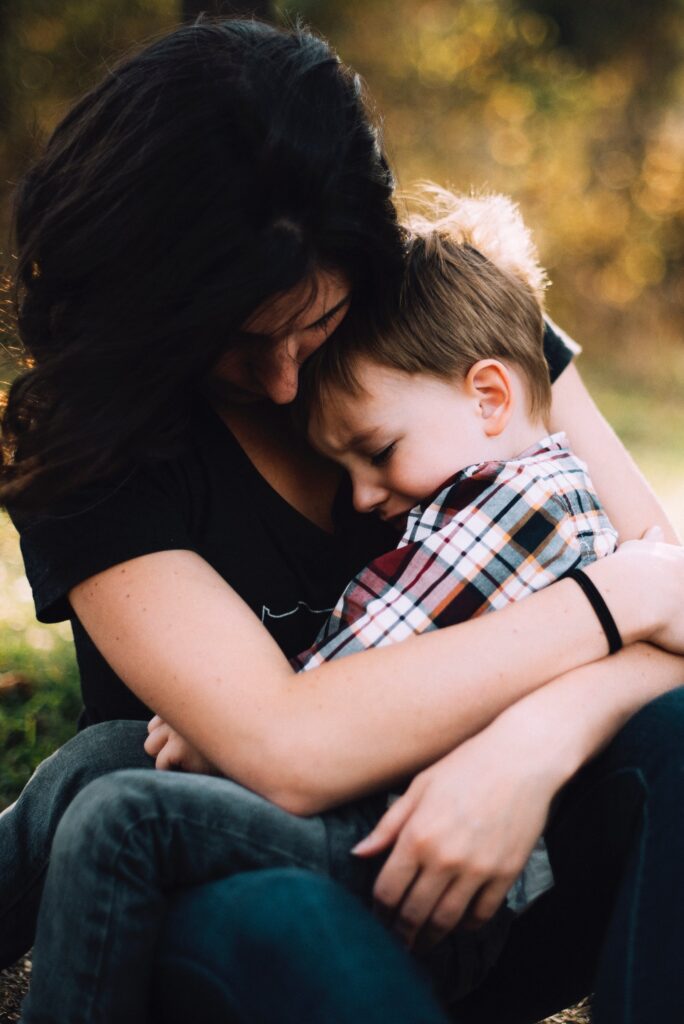
Open Adoption With Biological Family Contact
Open adoption is when a child gets adopted. However, the biological parents are still allowed to have a relationship with the child.
Depending on the agreement, extended family may also be permitted to be involved. It means the child's biological aunts, uncles, grandparents, and relatives could be part of the child's life.
It sounds appealing to many people but has many hardships associated with it. Of course, it can be wonderful if everything goes smoothly. Still, people tend to disagree on things by nature and even more so when it involves raising a child.
The most obvious difficulty arises with the adoptive parents having to see the biological family members once in a while.
The biological family members might give input on how to raise the child and other unwanted advice, which can lead to conflicts and emotional turmoil for everyone involved, including the child.
The best way to ensure an open adoption runs smoothly is to set up strict rules and ensure everyone adheres to them at all times.
Schedules must be kept, and everything has to be explained fully to the child when they are old enough to understand the situation. Therefore, this contract is usually set up far in advance.
Open adoption does have the benefit of providing a gigantic support system for the child that will last a lifetime. As long as both parties get along, they can interact together once in a while and do all kinds of fun stuff together.
Having everyone involved will instill a great sense of worth in the child as so many people love and care for them, but it cannot be very clear sometimes. Unfortunately, this type of open adoption isn't very common because most adoptive parents want a child to themselves.
Broken Promises in Open Adoptions
Broken Promises are promises made to children for adoption. Adoption agencies make these promises because they know that reuniting with their birth families is the best way to heal from the pain of abandonment and anguished potential adoptees who have been separated from their parents or other family members and placed in foster care. So, why do some adoptive families break up these promises? They don't. Many adoptive families keep their promise — unbroken. But not all adoptive families do. Some break those promises by giving their adopted child a false hope that their biological parents are still alive, even though reuniting with them would be the right thing to do.
When adopted children ask “Why?” about why they were adopted, they're probably asking why an adoptive family broke its promise.
They may begin to start looking for answers to questions like:
What is a broken promise, and how can it affect me as an adoptee?
How can I strengthen my loyalty and love for my adoptive family?
And how can I avoid breaking my promise in the future?
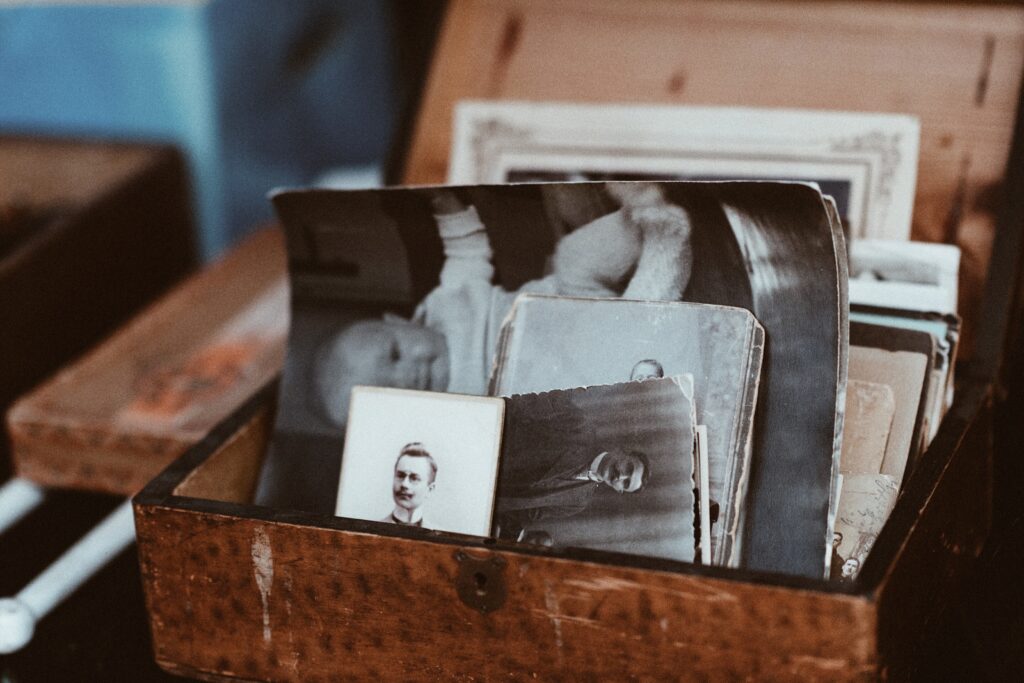
What to collect from the birth family as keepsakes to give your adopted child?
Adoption is an amazing journey and one that is full of love and emotion. When you adopt a child, there are a few things you should consider collecting from the birth family as keepsakes to give to your adopted child.
The first keepsake you should consider collecting is a photo of the birth family because it will help your adopted child connect with their birth family and help them build a sense of identity and understanding. You can also consider collecting important documents such as the adoption paperwork, a birth certificate, or any other legal documents the birth family has. These documents will help your adopted child learn more about their background and birth family.
Another important keepsake to collect for your adopted child is a family tree. A family tree can help your adopted child understand their birth family's history and better understand their cultural roots. In addition, you Consider collecting family photos, recipes, stories, or other items to help your adopted child learn more about their birth family.
You can also consider collecting souvenirs from the birth family. These mementos can be small and special objects such as jewelry, a special blanket, or any other items the birth family may want to give your adopted child. These mementos can help your adopted child feel connected and can be a great source of comfort for them.
Collecting keepsakes from the birth family to give to your adopted child can be an important part of their adoption journey. These keepsakes will help your adopted child form a connection with their birth family and gain a better understanding of their heritage. It can also help them feel more secure and comfortable in their new home and family.
Next, we will discuss: How An Adopted Person Can Find Their Birth Family
